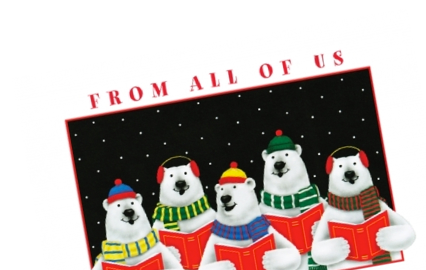Jun 12th 2019
Charity Spotlight: Animal Cancer Foundation
For Dorian Stern and the Animal Cancer Foundation, getting the right message across is often about correcting misunderstandings. Many who’ve heard about the organization for the first time mistakenly assume it uses animal testing to research cancer in humans, but that couldn’t be further from the truth. The Animal Cancer Foundation began operations in 1998 and is dedicated to the quality of life and longevity of pets with cancer.
According to Stern, director of development at the ACF, the majority of the organization’s donors are “pet parents” whose pets have cancer, and about 40% of donors are veterinarians themselves. When asked why the foundation devotes resources to fighting animal cancer when cancer in humans is still so prevalent, Stern was quick to offer an answer that speaks to just how fascinating and essential the ACF’s work is.
“Cancers that affect pets have a direct correlation to childhood cancers,” Stern said. “The information gained in studying pet cancer is shared with researchers studying childhood cancer. There are about 600 veterinary oncologists in the country, and they are all completely forthcoming in sharing their findings with those who study cancer in children and adults.”
There are seven common types of cancer in pets, and each of those provides useful information in decoding the mysteries of childhood cancers. The vast data mapping done as part of pet cancer research is becoming part of the public domain, giving doctors and scientists access to an ever-wider base of knowledge and insight on cancer.
“Patients and pet parents always tell us that if it wasn’t for research studies we’ve developed or funded, they or their pet would not have survived or had a better quality of life. A cancer diagnosis is devastating, but shouldn’t be a death sentence. That’s what the ACF is fighting for each day.”
The ACF’s study of cancer is not just about the treatment of existing patients, but about understanding preventative measures and lifestyle adjustments that can reduce the incidence of cancer. The accumulation of knowledge is an important part of what makes the ACF successful.
“Donors are becoming more like investors,” Stern said. “They’re looking for measurable, meaningful returns and track records. You can really document the progression of what’s going on in research. Food and exercise play roles in how vulnerable pets and people are to cancer. We are advocates for healthier lifestyles, and we believe with increased research and understanding, a cure will be possible.”
Stern noted that the unconditional love shown by pets is a major motivator of the ACF’s work.
“No matter what, our pets are always there to greet us when we come through the door. That type of devotion and compassion is priceless. We want to maximize the time that pets and pet parents can spend together because there’s nothing else like it.”


 Business
Business
 Personalized
Personalized
 Holiday
Holiday
 Customer
Customer
 Bulk
Bulk
 Birthday
Birthday
 Thank You
Thank You
 Anniversary
Anniversary
 Sympathy
Sympathy
 Retirement
Retirement
 Christmas
Christmas
 Thanksgiving
Thanksgiving
 New Year
New Year
 Hanukkah
Hanukkah
 Rosh Hashanah
Rosh Hashanah
 Appreciation
Appreciation Merry Christmas
Merry Christmas Happy Holidays
Happy Holidays Seasons Greetings
Seasons Greetings Funny Cards
Funny Cards Religious
Religious Peace
Peace Patriotic
Patriotic Accounting
Accounting Finance
Finance Photo Cards
Photo Cards Foil Cards
Foil Cards Laser Cut Cards
Laser Cut Cards Die Cut Cards
Die Cut Cards Front Imprint
Front Imprint Recycled Cards
Recycled Cards New York
New York San Francisco
San Francisco Chicago
Chicago Los Angeles
Los Angeles Houston
Houston By Animal
By Animal Christmas Tree
Christmas Tree Western/Southwestern
Western/Southwestern Tropical/Beach
Tropical/Beach Winter Scenes
Winter Scenes Budget Cards
Budget Cards Legal
Legal Construction
Construction Real Estate
Real Estate Trucking
Trucking Accounting
Accounting Holiday Phrases
Holiday Phrases








 Fully Custom
Fully Custom  Friendly
Friendly A portion of every card purchased is donated to charity.
A portion of every card purchased is donated to charity.
 Proudly Made
Proudly Made